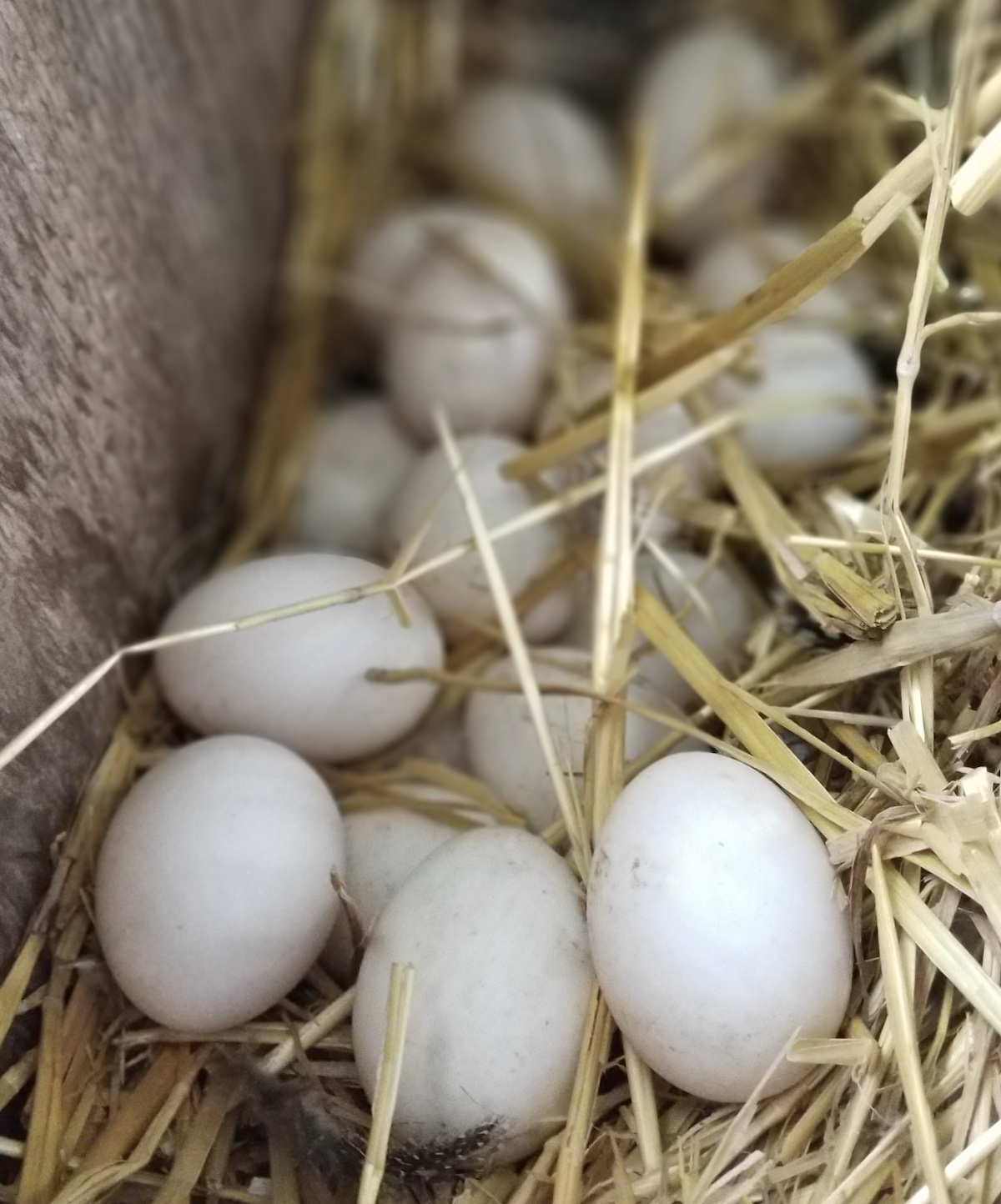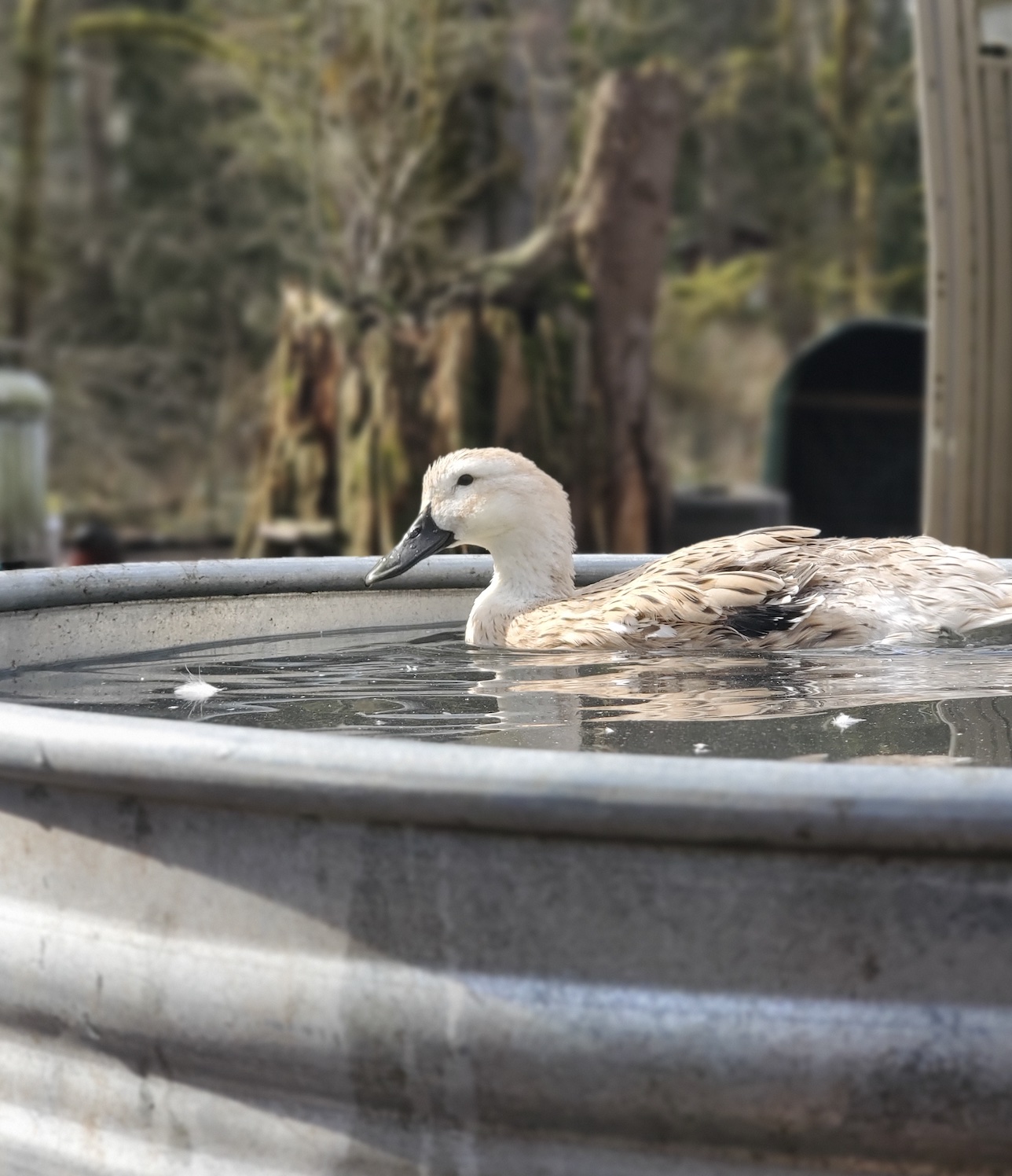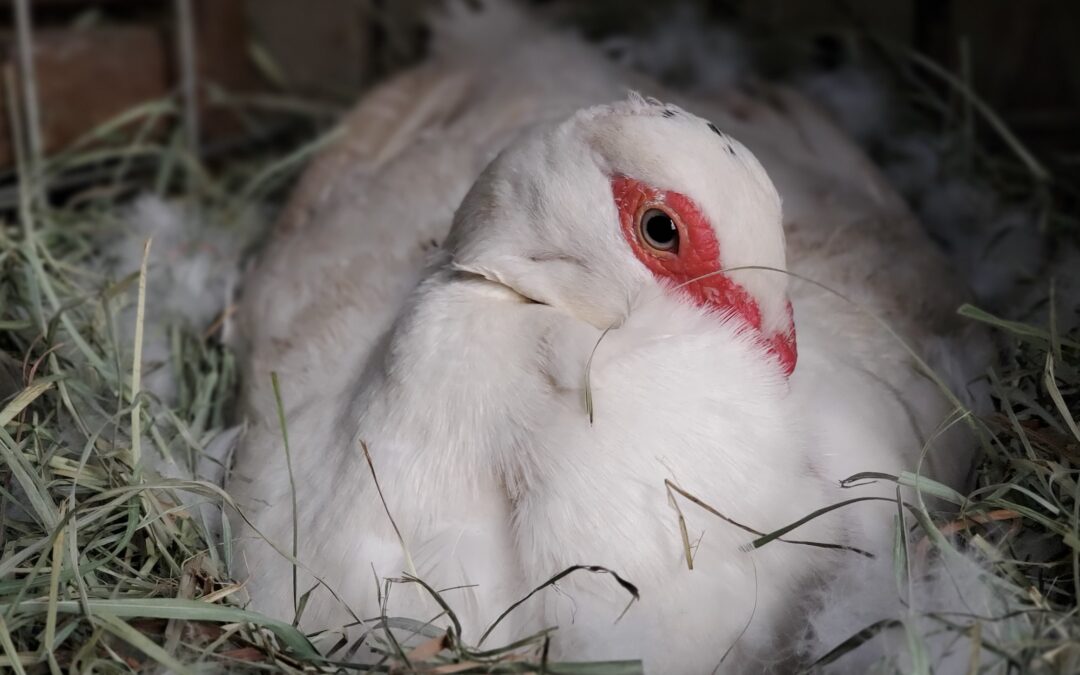I have been known to swim against the current, do things my way, and voice my reasons loudly. Not in a bossy way, but in a way that makes you wonder if you should have taken my advice. This rings true for my beliefs on intentional gardening, how and what I choose to preserve, my pasture rotation schedule, and which livestock, small or large, we choose to raise on the farm.
With that said, I stand behind the fact that every homestead or farm should raise waterfowl. Now, before you mouth the words, nope, no way, I will do my very best to convince you to raise waterfowl on your property. All I ask is that you keep an open mind as I share my top five reasons to raise waterfowl!
Reason #1: They are much hardier than chickens
Whether you are considering raising ducks, geese, or even Muscovies, waterfowl are hardy birds that have very few health issues. They are much hardier than chickens or guineas. As a result, they are less susceptible to diseases such as coccidiosis or respiratory issues. In addition, waterfowl are less likely to have lice and mite issues due to how often they preen themselves and get wet throughout the day.
Another bonus to raising waterfowl is that ducklings are also hardier than chicks and are more likely to survive the first week of life. Additionally, waterfowl adapt to extreme temperatures quite well. Their down feathers allow them to remain warm through the coldest temperatures, and their love of water will enable them to stay cool during the hottest days.
Reason #2: Ducks are better egg layers than chickens
Egg production is a major reason to choose to raise waterfowl on the homestead or in your backyard. Two factors determine which species is a more productive layer, and keep in mind that the age of a bird plays a significant role in egg production. Let’s take the following two breeds as an example:
-
Production Leghorns can lay up to 300 eggs a year, with an egg weighing an average of 24-26 ounces. Because they produce an astronomical amount of eggs, Leghorns have a short laying period during which they are considered high producers. However, after the first year of laying, the amount of eggs this high producer provides begins to decline rapidly.
-
Khaki Campbell ducks can lay an average of 320 eggs a year, with the average egg weighing 32-34 ounces. Unlike Leghorns, ducks can continue laying a high yield of eggs for roughly three years before egg production begins to decline.

Reason #3: Duck eggs are superb for baking
Raising ducks for their eggs is a must if you love to bake. The duck yolks are much richer in flavor and provide a delicious texture to your baked goods. Think of rich French toast, fluffy cakes, airy meringues. Duck eggs also help make bread and cookies lighter in texture. In addition, the higher fat content found in duck eggs allows baked goods to rise much better than chicken eggs. My Old Fashioned Egg Custard Pie recipe is one of our family’s favorite ways to use up extra duck eggs!
Reason #4: They thrive in all weather conditions
Another reason to consider raising waterfowl is their adaptability. Regardless of where you reside, ducks are ideal for all weather conditions. At the peak of summer, ducks do an exceptional job tolerating the heat. To keep ducks cool during summer heat, you need:
- A kiddy pool
- A bucket of water filled a few times daily
- A mud puddle near a water source (Don’t worry too much about making a mud puddle for ducks, though…They do a fine job making one themselves as long as water is available!)
In the winter months, ducks do just as well. The extra layer of fat found on waterfowl helps to keep these birds warm. In addition, their down feathers deflect even in the coldest temperatures. However, their continual preening keeps their feathers waterproofed, preventing waterfowl from becoming waterlogged. A bird with waterproofed feathers often enjoys swimming regardless of the outside temperatures.

Reason #5: Domesticated ducks do not fly and are quieter than chickens
Let me correct myself: domestic ducks can flap their wings hard enough to lift them off the ground. However, they cannot fly away as wild ducks and geese do. This is because duck breeds, such as Silver Appleyards, Rouens, and Pekins, are heavy-bottom waterfowl. For this reason, they cannot fly away.
Overall, waterfowl are much quieter than chickens. For example, drakes do not crow like roosters, and duck hens do not scream the egg song when an egg has been laid. You also will not find a duck hen running through the pasture announcing her arrival.
If you are on the fence about raising waterfowl, I suggest you try them. You may end up enjoying them more than you thought you would!

Ann Accetta-Scott is a homesteader in Tennessee raising poultry, goats, cows and rabbits. She is an educator and encourages those who are seeking to live a more sustainable lifestyle. Ann is also the face behind the website A Farm Girl in the Making and author of The Farm Girl's Guide to Preserving the Harvest.
Photos courtesy of Ann Accetta-Scott.

